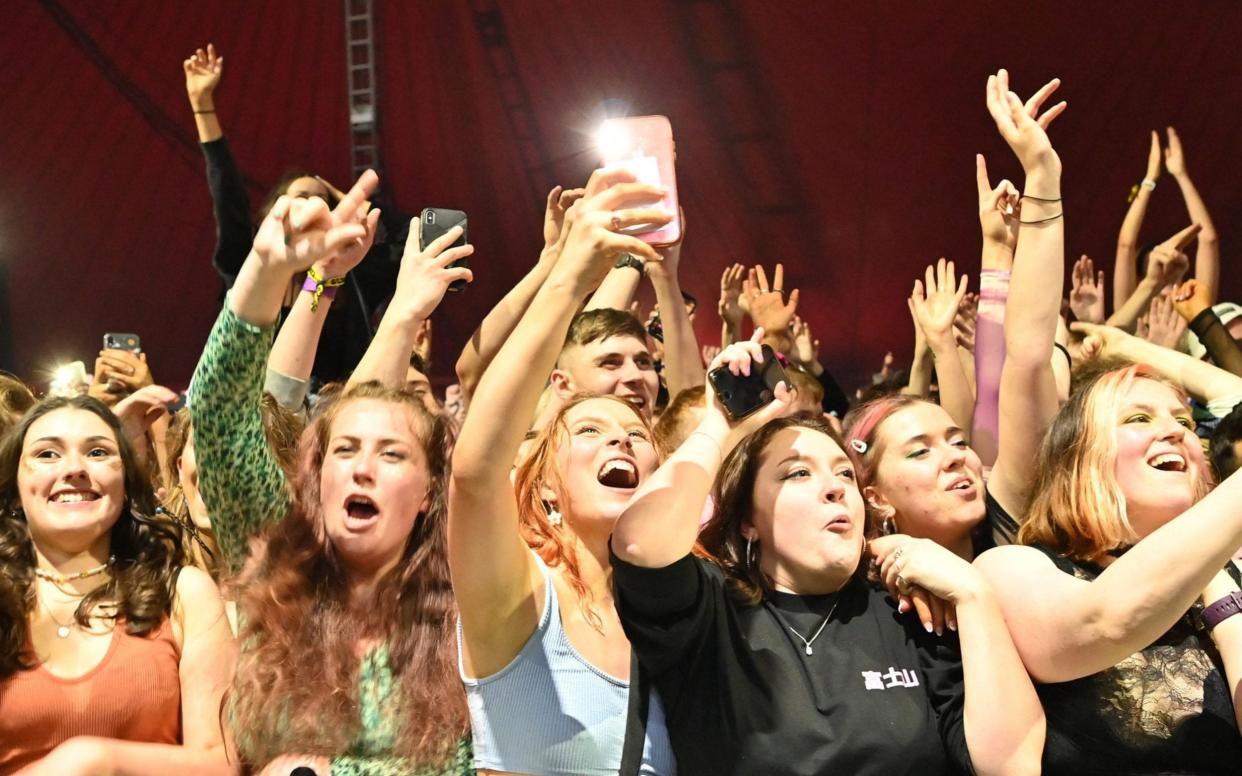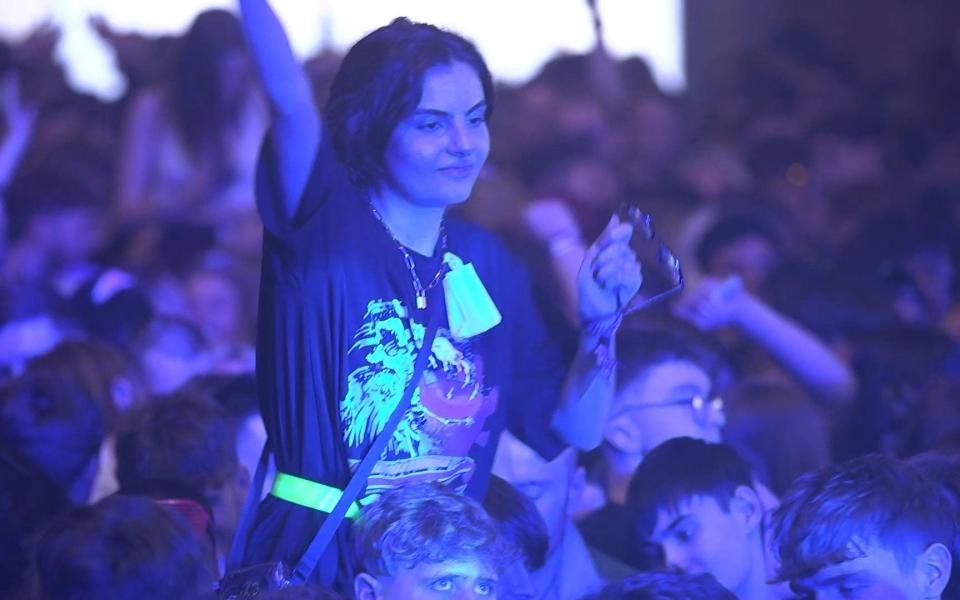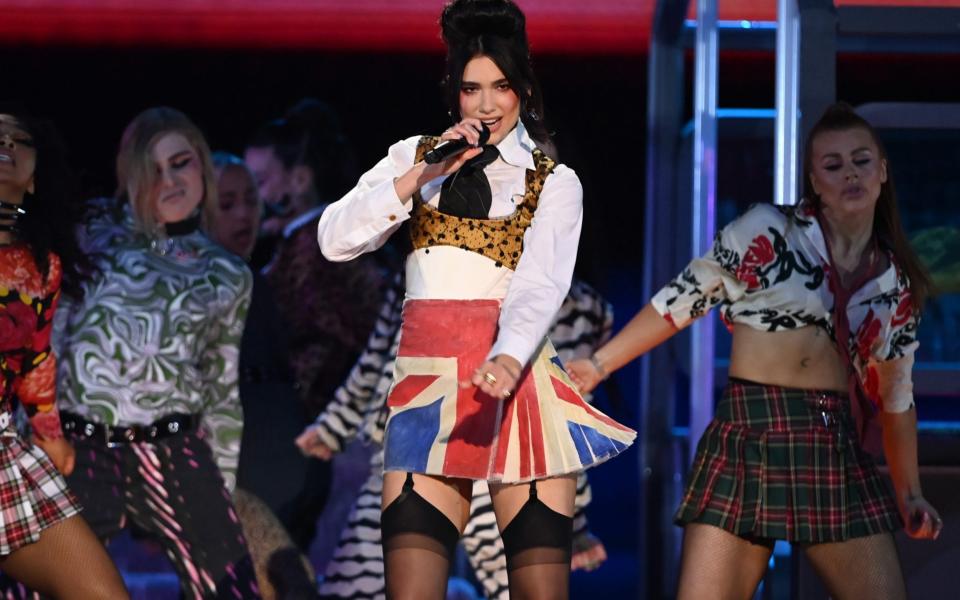What was the point of the Government’s pilot events?

What is the point of the Government’s event pilot scheme? That’s the question being asked in pockets of the arts and sports world after 15 months of bruising inactivity.
Since mid-April, nightclubs, theatres, concert halls and sporting venues have been taking part in a series of Government-backed test events to assess the transmission risk of Covid-19 among large crowds. The pilots have been viewed as a precursor to the total lifting of lockdown restrictions at Step 4, the final stage of Boris Johnson’s “Roadmap out of lockdown”.
Last night Johnson delayed Step 4 from June 21 to July 19 due to a surge in the so-called Delta variant of Covid. However the Prime Minister expressed confidence about a “full opening up” of life on July 19, a date he insisted would be the new “terminus” of all restrictions.
And yet the pilots continue. Wimbledon, the final Euros football matches and – according to Johnson last night – Andrew Lloyd Webber’s new Cinderella musical will become test events in the coming weeks. Other West End productions, possibly Hairspray and Phantom of the Opera, are rumoured. But why, some people are asking? If all restrictions are to be lifted on July 19, then what’s the point of holding pilot events? Pilots for what? A pilot for normality is, well, normality.
Unless, of course, some sort of restrictions on mass gatherings could remain post-Step 4. Such an eventuality would be catastrophic for companies in the live events industry, who rely on full houses to make their profits. This move would be especially galling as the pilots held thus far as part of the so-called Events Research Programme (ERP) have proven remarkably safe. Last month, the Telegraph reported that just 15 people among the 58,000 who took part in trials including the FA Cup Final and the Brit Awards tested positive for Covid. That’s a rounding error that even Chancellor Rishi Sunak would be likely to dismiss as irrelevant.

This morning Culture Secretary Oliver Dowden said that more work was needed to assess the safety of mass gatherings. He tweeted: “We want to gather further evidence on how we can open up all big events safely, and for good. The expansion of trials of the NHS App and Lateral Flow Testing will mean that bigger crowds will be able to attend a limited number of major sporting and cultural events early this summer as part of our Events Research Programme.”
Dowden’s use of the dreaded phrase “further evidence” will send shivers down the spine of venue owners across the land. It suggests that the pilot schemes remain a work in progress. But a spokesman for the Department for Digital, Culture, Media & Sport (DCMS) poured water on speculation that restrictions on mass gatherings will continue post-Step 4. “The purpose of Step 4 is to be fully unlocked,” he said. The ERP is all about gathering useful information to inform Step 4, he said. It is not the intention that pilots will continue beyond Freedom Day. The hope is that freedom will mean total freedom on July 19.
Yet wiggle room has been built into the system. The small print of the ERP when it was announced back in February said that Step 4 and the return of mass gatherings may not necessarily coincide. The lifting of restrictions on large-scale events at Step 4 would, the particulars read, be “subject to the results” of the pilots. Logistically, to me at least, the timing of these new pilots also looks tight.
The Wimbledon finals – which will "pilot" capacity crowds on the famous Centre Court – take place just eight days before the putative Freedom Day of July 19. Is eight days enough time to gather the data, crunch the numbers, argue the toss, feed the findings through the Whitehall machine, give them a political polish and make a policy for mass gatherings one way or another? Yes, say people close to the pilots. It’s plenty of time. And it’s all about learning.
Still, people who’ve held pilot events to date are dismayed that lockdown has been extended. DJ Yousef runs Liverpool’s Circus nightclub, which held Government test events on the city’s Bramley Moore Dock Warehouse on April 30 and May 1. The events saw 6,000 ravers dance to the likes of Fatboy Slim. Yousef compares freedom to an unattainable carrot being constantly dangled or a race in which participants are forced to restart.
“My heart sank because it’s almost like getting to the end of a really long marathon where you’ve been starved of anything to eat and drink the whole time – metaphorically speaking but almost literally in terms of Government support – and you get to the end of the line and you’ve got to go back,” he says.
It’s particularly baffling as his pilots went without a hitch. Infections, he says, were “nominal” and the warehouse was “almost the safest place in the UK” that weekend. “It proved that we are capable of moving forward,” Yousef says.
The DCMS was “absolutely blown away” by the way the event was run and how attendees did everything asked of them. “In their view it was an absolute gold standard of everything they could have ever wished for. And the cases were almost nominal. Yet here we are being told that, by the way, we have to wait. I’m not going to sit here and say there are no other variables – we need to talk about the Delta variant. We need to live in the real world, but so do the Government,” he says. Using another analogy, he compares it to winning the World Cup but being denied the victory ceremony.
“It is a real shame that [the pilots have] not led to the kind of ceremonial opening on June 21. A ‘We did it!’” he says. “I do think that’s a real disappointment, actually.”
Yousef doesn’t regret doing the event. Far from it. He says it proved that the nightclub industry is serious, capable, agile and reasonable. “It made the whole industry shine,” he says, adding he’d go “round the twist” if he only focused on the negatives. However he’s not sure that the Government realises just how big a business dance music is – and how economically damaging continued lockdown is. “I’ve spoken to a few ministers and they blatantly don’t know the difference sometimes between Dave Double-Decks in the local boozer and, say, The Prodigy headlining Glastonbury,” Yousef says.
Others in the entertainment industry have questioned whether the pilots’ positive results have been taken into account. Michael Kill, the chief executive of the Night-Time Industries Association, says: “The immense efforts of industry operators to deliver club and festival environments as part of the Events Research Programme was hailed as a success on all sides, but you have to question whether the evidence from these events was wholly considered by Government.”

The Government says it has considered the evidence. On Friday June 4 it put out a ‘Science Statement’ about the first phase of the ERP pilots. It said that the pilots to date were “insufficient in scale, scope and study designs” to generate enough direct evidence on how to open up events in order to mitigate transmission risk. However they provided crucial evidence on the potential effectiveness of air ventilation systems, event organisation and venue design.
Which brings us to the new wave of pilots. Even Lord Lloyd-Webber, about whom Johnson said he had “colossal” admiration, seemed taken aback by the announcement that Cinderella could be part of the new batch of trials. The musical is due to open for previews later this month and the West End impresario said last week that he was determined to reopen his theatres without social distancing “come hell or high water”, even if it meant him being arrested for it.
In a statement last night, Lord Lloyd-Webber said he was “pleased and surprised” about the Cinderella news. However he added that his goal was to “fight for the full and safe reopening of theatre and live music venues up and down the country”. This morning he toughened his stance, telling the Telegraph: “I won’t take part in any pilot unless other producers are fairly represented.” Cinderella shall go to the ball – but she wants to take the rest of theatreland with her. There are rumours that Nimax Theatres, the group behind Harry Potter and the Cursed Child, could also possibly be included.
So are these new pilots token gestures to let some fun stuff happen? To give people a glimmer of normality and to stop the Lloyd Webbers of this world venting to the media? Or are they genuinely constructive scientific experiments? The reality is that they’re probably both. We can only hope that with five weeks to go before lockdown (hopefully) ends for good, the new pilots don’t throw up any nasty surprises.
“Hopefully in a month’s time this conversation won’t matter,” says DJ Yousef about the ever-dangling carrot of freedom. Millions of music, theatre and sports fans the length and breadth of the country would agree.

